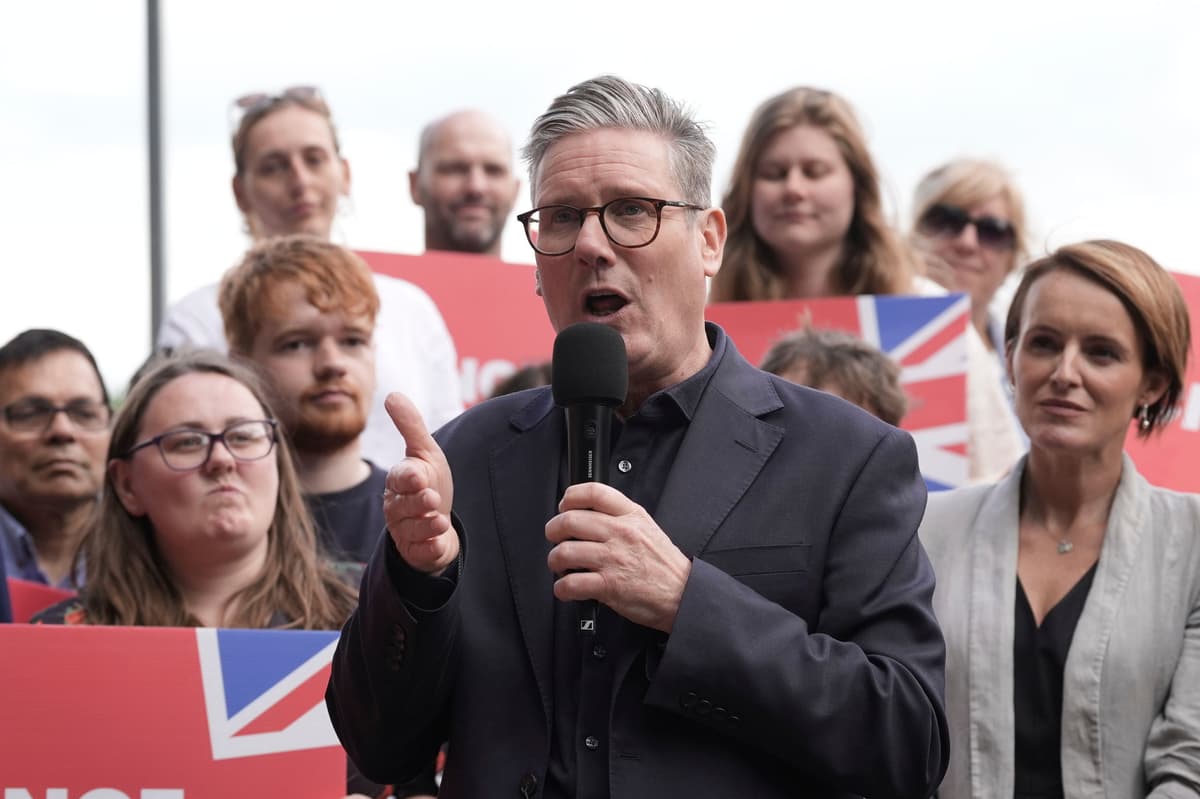Tories Face a Trouncing at the Ballot Box: Pin the Blame on the Party’s Betrayal of the Promise of Brexit
Calmer heads and strategic voting would suggest that electors cast ballots to keep Labour out of office, rather than to keep the Tories in.

“When sorrows come, they come not single spies but in battalions.” Shakespeare’s sentiments may ring true for British Conservatives as they contemplate their fate following Thursday’s general election.
Brexiteers, too, will think about what the future holds for their philosophy of “maximal liberty and minimal government,” under a Labour regime.
A Conservative government under three prime ministers, having delivered Brexit, proceeded to betray the promises of border control, lower taxes, and economic growth through regulatory reform and fiscal rectitude.
Add in continuing disenchantment with failing health services, rising crime statistics, and a dysfunctional bureaucracy that privileges leftist-progressive agendas over traditional British values, and you have the recipe for a Tory trouncing at the ballot box.
Unfortunately, these woes will only worsen under a Labour administration. Calmer heads and strategic voting would suggest that electors cast ballots to keep Labour out of office, rather than to keep the Tories in.
Regardless, emotions of betrayal are too great. After the Labour Party, Nigel Farage and his Reform UK are the beneficiaries of Conservative incompetence.
For the rise of Reform is the corollary to Tory failures in office. Doubtless there would have been no return of Mr. Farage to the political fray if the Conservatives had been as good as their word to “Get Brexit Done.”
Now, surveys show the Tories going down to ignominious defeat. One poll by Whitestone Insight, more or less mirrored by other surveys, has Labour at 38 percent, the Conservatives at 21 percent, and Reform at 18 percent — with the center-left Liberal Democrats at 10 percent.
These percentages translated into seat-counts, the firm Electoral Calculus projects Labour winning 453 seats; the Conservatives, 79; the Lib-Dems, 67; and Reform, 10. (Note Liberal Democrat results on election night, as some polls indicate they will form the official Opposition rather than the Tories.)
If these projections hold true, then Premier Rishi Sunak will be replaced at Downing Street by Sir Keir Starmer.
Tories will thus begin the painful postmortem on their defeat. The Conservative Government’s betrayal of Brexit should be the core theme of any such introspection.
It will require an acceptance of what their own actions — or inactions — have wrought. Expect them to undergo the various stages of grief: Anger, depression, and eventually acceptance.
As it is, Conservative candidates are already navigating the “bargaining” process with voters, as they ask for forgiveness and another go at governing.
Part of this bartering with the electorate includes stoking up fears of a Labour parliamentary “supermajority” — where Sir Keir wins so many seats that he can govern unopposed in the Commons and without regard to public sentiment.
Brexit would have benefited if the Tories and Reform had been able to ally before election day. Bad blood, political rivalries, and distrust stood in the way.
Throughout the campaign, there were Conservatives who acknowledged that, with apologies to Shakespeare, “the fault lies not in Reform but in ourselves that we are underlings.”
Among such political realists are Lord David Frost, Suella Braverman, and Sir Jacob Rees-Mogg.
Others have not been so blessed with self-awareness. With varying levels of vitriol, they lay the blame at the feet of Mr. Farage for the scale of the projected Labour victory.
Prominent among this number are Penny Mordaunt, Priti Patel, Grant Shapps, Kemi Badenoch, and James Cleverly.
With the electorate on the right divided between the Tories and Reform, some degree of rapprochement seems logical.
Yet of this faction, only Ms. Braverman may have support among her Conservative colleagues to lead the battered party.
Whereas the anti-Reform Tories are more numerous. This faction is dominated by centrist “One Nation” Conservatives. Penny Mordaunt and Tom Tugendhat lead this contingent.
Then there are the outliers. Dame Priti and Ms. Badenoch are Brexiteers but have little outward sympathy for Reform. Lord Frost would be an ideal Tory leader, but is hamstrung by being stuck in the Upper House.
Such speculation is academic, however, until the votes are counted and results announced Thursday night, into Friday morning. Of the candidates discussed, all could potentially lose their Commons seats. A dark horse may yet emerge.
Count Mr. Farage as such a contender. He has joked about taking over the Conservative Party through a hostile take-over. If so, expect more infighting on the right.
Centrists will vehemently oppose any rightward shift, especially if engineered under a Conservative-Reform alliance. Only the counting of the ballots will give a clear idea how Conservatives and Reform shake out and will forge ahead.
Perhaps a shock result will knock resistant Tories back into reality — and the realization that the best response to a Labour Government is a united right for Brexit.

